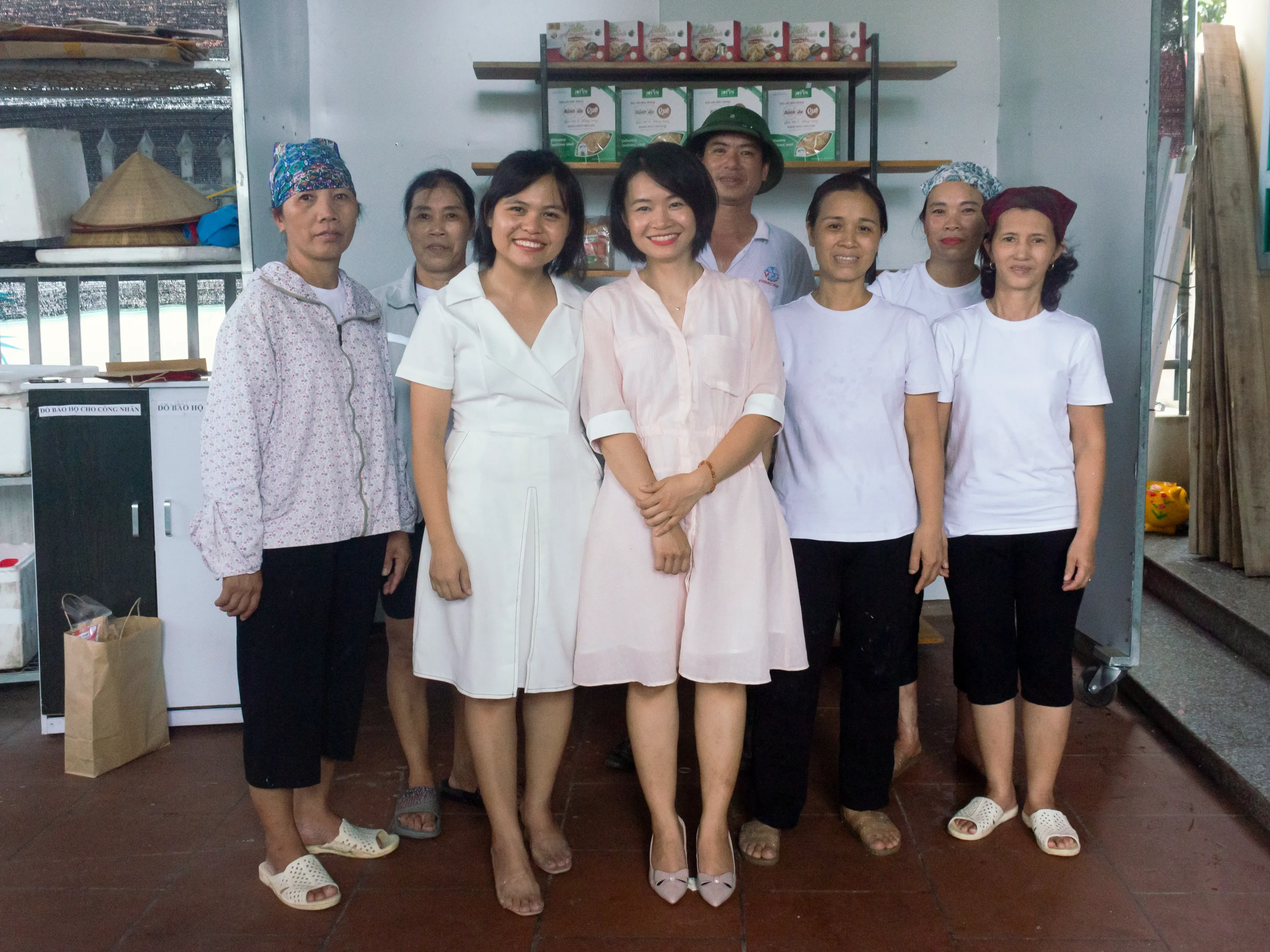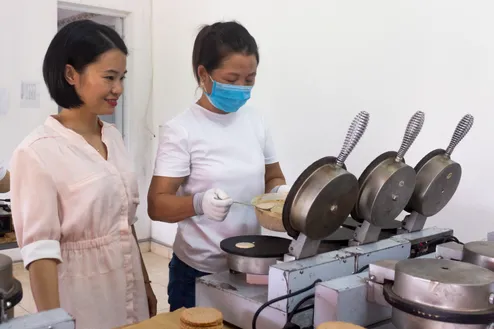Van first started cooking and selling dried fish at the age of five, during village celebrations in Bac Giang.
“It was in my blood to run a business,” she says.
Still, Van struggled to persuade her family that leaving the security of her job in banking for the uncertainty of her own small business was the right decision.
Van also faced the challenge of deeply entrenched ideas about “caregivers” and “breadwinners” in Vietnamese households, the same ideas that recent research published by CARE has shown are holding women back from doing what they know how to do.
In Vietnam, CARE found that 80% of men and 60% of women agreed that businesswomen should be the main childcare giver, despite the additional pressure of running a business. And 76.6% of those aged over 51 agreed that men should be the main breadwinner for their households.
Also in Vietnam, mothers-in-law were revealed as the staunch upholders of the norm related to childcare, the ones who would most disapprove if the man does more childcare than the woman.
Surprisingly this was followed closely by the woman entrepreneur herself.
Van, who is now running a successful business producing and selling food products, specializing in healthy crackers, wants to set a different example to their two sons.
“I want my two boys to see me as a female role model – a woman who can live a good life, run a good business and not worry about financial burdens.”
Van wants to show not just her sons but the world that women know how to run a business.
A new generation with new ideas
One bright spot in CARE’s research was that 63.3% of 26-50 year-olds disagreed with the norm around men being the breadwinner, showing a more progressive response by the younger cohort toward traditional roles of women and men, so Van’s sons are part of a new generation that could help change how things have been done.
“Women in Vietnam are often framed as only being able to take care of the home,” Van says.
“I want my boys to see that women are capable of doing many things beyond that.”



